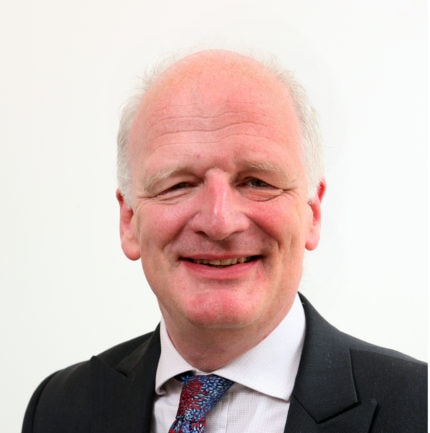Universities and university lecturers know very well what is important for their students. For example, they know it is important for students to develop certain transferable skills, for them to master fundamental concepts of their subject and for them to undertake suitable work experience.
However, how well do they know what is important to their students? What is important to them in the subject that they have chosen, what they want to do in life and what they do outside the lecture hall.
In universities we often talk about student centred services, of putting the student in the centre of what we do. But we can only do that if we find out what is important to the student, not just what is important for them.
A parallel to this is found in care services, for example for elderly or disabled. There are many things that are important for people in care; that they take their medication, that they have good nutrition and that they are supervised to make sure that they are safe.
But person-centred care considers things that are important to the person. This may be their autonomy, an activity or the need to belong to a group. Sometimes what is important to a person will conflict with what is important for them. The need to be autonomous may mean that they want to take a risk to go out for a walk on their own.
Good care is about finding a way of aligning or balancing these different demands and of knowing when one should acknowledge the “important to” and abandon the “important for”.
Important to whom?
Much of university education is based on what lecturers (or institutions) think is important for their students. Often, they are correct. It is important for a medical student to learn to take blood competently! However, sometimes lecturers will take students into esoteric backwaters that they think are important for the student but are probably more important to the academic.
What are the consequences of finding out what is important to students? The first is the act of finding out. This requires getting to know students; what is important to someone is key to who they are.
It is particularly important in settings where the student population is diverse and many do not have a family history of higher education. It is dangerous to assume that because something is (or was) important to me in my education that it will be important for people with a different story.
It is of course challenging to do this at scale. However, it is in large part about the nature of the relationship between the lecturer and student. Transforming the interaction from a “child” with “parent” to an interaction between two adults moves the relationship from being superficial and transactional into a more adult and productive one.
It does not take long to find out what is important to someone. What it requires is a willingness to be open to them, a vulnerability to have one’s assumptions and values challenged and to empathise with them.
We may need to help students find out what is important to them, rather than what regulatory bodies, media and policy makers say are important for them. This will require providing a diversity of experiences and thoughts, and showing that the question “what is important to you?” is a fundamental one. We do that by demonstrating that the answers to that question are central to our lives and jobs.
Seeking alignment
What is important “for” and what is important “to” a student will often be in alignment. Many students want university to provide them with the skills (and qualifications) to get a good job. What universities think will be important for them to boost employability will align with this. What the university needs to do is help the student see and understand the alignment.
Sometimes the alignment will be less obvious, and someone may need to work with the student to align the two strands. A creative arts student may not see the importance of learning about business. However, if what is important to them is to be an independent practitioner then learning to run a business will enable them to achieve their goal. The parallel in the care system is helping a person see that if they look after themselves (taking their medication or eating healthily) then they will be more able to do the things that they want to do.
In some cases, the students may need to accept a trade-off, balancing the two strands. For a fellow student at university sport was the most important thing to her. She made a very conscious trade-off, working just hard enough at what was important for her to pass exams while doing as much sport as she could. It was a very conscious choice. Possibly more conscious than many of us will make on a Friday night when balancing the importance to us of an extra glass of wine with the importance for us of cutting down on alcohol!
If universities, or agencies involved in higher education, really are going to put students at the heart of the system, they need to find out what is important to them. This is not to mean that what is important for them should be ignored (in the care setting it is important for people to get their medication). But if universities can understand the “importance to” it will help them enable their students to achieve what they want to achieve, which will often (but not always) be what they ought to achieve. They can help their students align or balance off the two strands when they appear to be in conflict, which can increase their motivation and so outcomes (something that is important for universities!).













